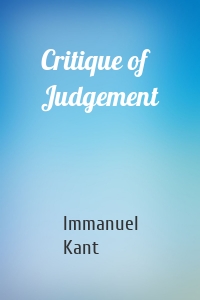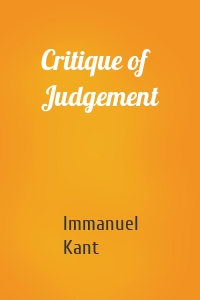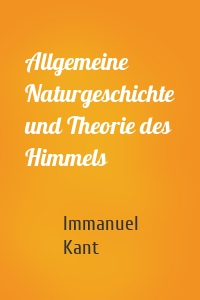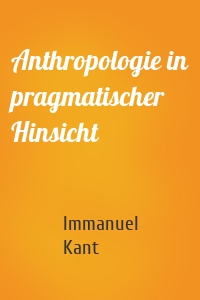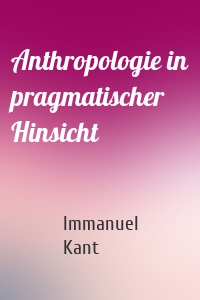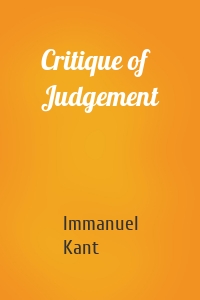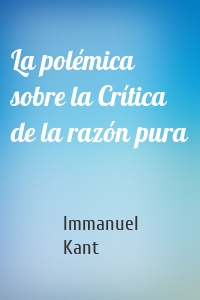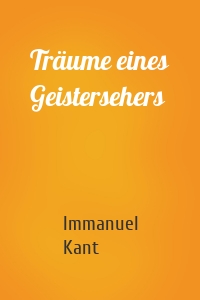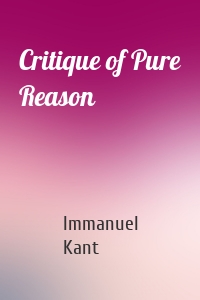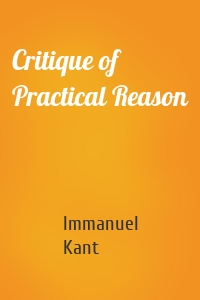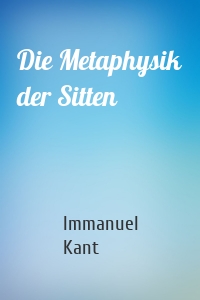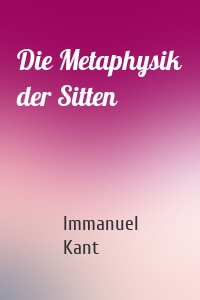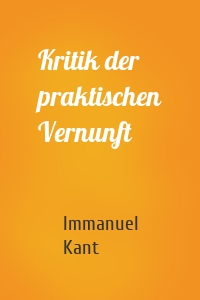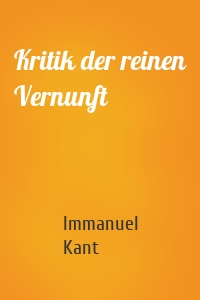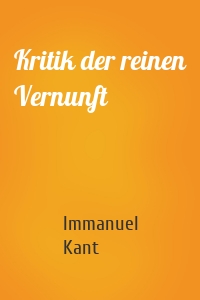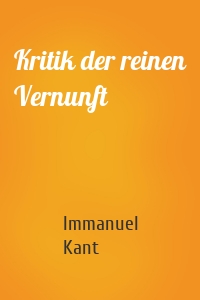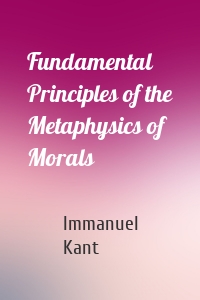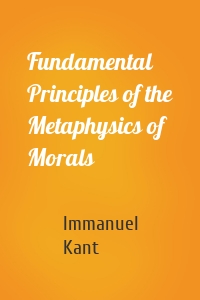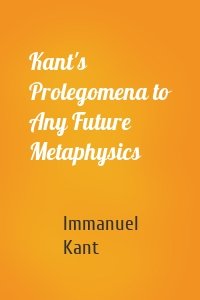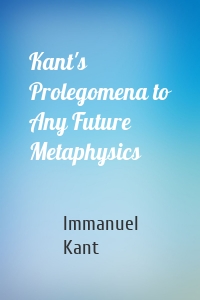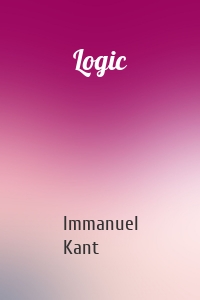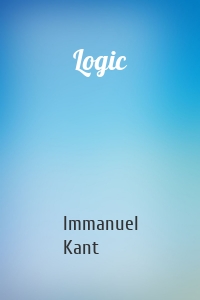Immanuel Kant
115 кн.
Critique of Judgement
German philosopher and significant 18th century late Enlightenment thinker Immanuel Kant wrote «Critique of Judgment» in 1790 to solidify his ideas on aesthetics. Divided into two sections, one on aesthetic judgment and the other on teleological judgment, «Critique» proceeds to analyze the human experience of the beautiful and the sublime. From the effect of art and nature to the role of imagination, from objectivity of taste to the limits of representation, Kant investigates a myriad of factors...
| Автор | Immanuel Kant |
Critique of Judgement
German philosopher and significant 18th century late Enlightenment thinker Immanuel Kant wrote «Critique of Judgment» in 1790 to solidify his ideas on aesthetics. Divided into two sections, one on aesthetic judgment and the other on teleological judgment, «Critique» proceeds to analyze the human experience of the beautiful and the sublime. From the effect of art and nature to the role of imagination, from objectivity of taste to the limits of representation, Kant investigates a myriad of factors...
| Автор | Immanuel Kant |
Critique of Judgement
German philosopher and significant 18th century late Enlightenment thinker Immanuel Kant wrote «Critique of Judgment» in 1790 to solidify his ideas on aesthetics. Divided into two sections, one on aesthetic judgment and the other on teleological judgment, «Critique» proceeds to analyze the human experience of the beautiful and the sublime. From the effect of art and nature to the role of imagination, from objectivity of taste to the limits of representation, Kant investigates a myriad of factors...
| Автор | Immanuel Kant |
Critique of Pure Reason
In his monumental Critique of Pure Reason, German philosopher Immanuel Kant (1724–1804) argues that human knowledge is limited by the capacity for perception. He attempts a logical designation of two varieties of knowledge: a posteriori, the knowledge acquired through experience; and a priori, knowledge not derived through experience. Kant maintains that the most practical forms of human knowledge employ the a priori judgments that are possible only when the mind determines the...
| Автор | Immanuel Kant |
Critique of Practical Reason
The second of Kant's three critiques, <I>Critique of Practical Reason</I> forms the center of Kantian philosophy; published in 1788, it is bookended by his <I>Critique of Pure Reason</I> and <I>Critique of Judgement</I>. With this work Kant establishes his role as a vindicator of the truth of Christianity; he approaches his proof by presenting positive affirmation of the immortality of the soul and the existence of God. The philosopher offers an argument...
| Автор | Immanuel Kant |
Fundamental Principles of the Metap...
What is morally permissible, and what is morally obligatory? These questions form the core of a vast amount of philosophical reasoning. In his Fundamental Principles of the Metaphysics of Morals, Immanuel Kant developed a basis for the answers.In this landmark work, the German philosopher asks what sort of maxim might function as a guide to appropriate action under a given set of circumstances. By universalizing such a maxim, would morally permissible behavior not become clear? Suppose that...
| Автор | Immanuel Kant |
Fundamental Principles of the Metap...
What is morally permissible, and what is morally obligatory? These questions form the core of a vast amount of philosophical reasoning. In his Fundamental Principles of the Metaphysics of Morals, Immanuel Kant developed a basis for the answers.In this landmark work, the German philosopher asks what sort of maxim might function as a guide to appropriate action under a given set of circumstances. By universalizing such a maxim, would morally permissible behavior not become clear? Suppose that...
| Автор | Immanuel Kant |
Kant's Prolegomena to Any Future Me...
"Kant's Prolegomena to Any Future Metaphysics" by Immanuel Kant. Published by Good Press. Good Press publishes a wide range of titles that encompasses every genre. From well-known classics & literary fiction and non-fiction to forgotten−or yet undiscovered gems−of world literature, we issue the books that need to be read. Each Good Press edition has been meticulously edited and formatted to boost readability for all e-readers and devices. Our goal is to produce eBooks that are...
| Автор | Immanuel Kant |
Kant's Prolegomena to Any Future Me...
"Kant's Prolegomena to Any Future Metaphysics" by Immanuel Kant. Published by Good Press. Good Press publishes a wide range of titles that encompasses every genre. From well-known classics & literary fiction and non-fiction to forgotten−or yet undiscovered gems−of world literature, we issue the books that need to be read. Each Good Press edition has been meticulously edited and formatted to boost readability for all e-readers and devices. Our goal is to produce eBooks that are...
| Автор | Immanuel Kant |
Logic
The second, corrected edition of the first and only complete English translation of Kant's highly influential introduction to philosophy, presenting both the terminological and structural basis for his philosophical system, and offering an invaluable key to his main works, particularly the three Critiques. Extensive editiorial apparatus.
| Автор | Immanuel Kant |
Logic
The second, corrected edition of the first and only complete English translation of Kant's highly influential introduction to philosophy, presenting both the terminological and structural basis for his philosophical system, and offering an invaluable key to his main works, particularly the three Critiques. Extensive editiorial apparatus.
| Автор | Immanuel Kant |


